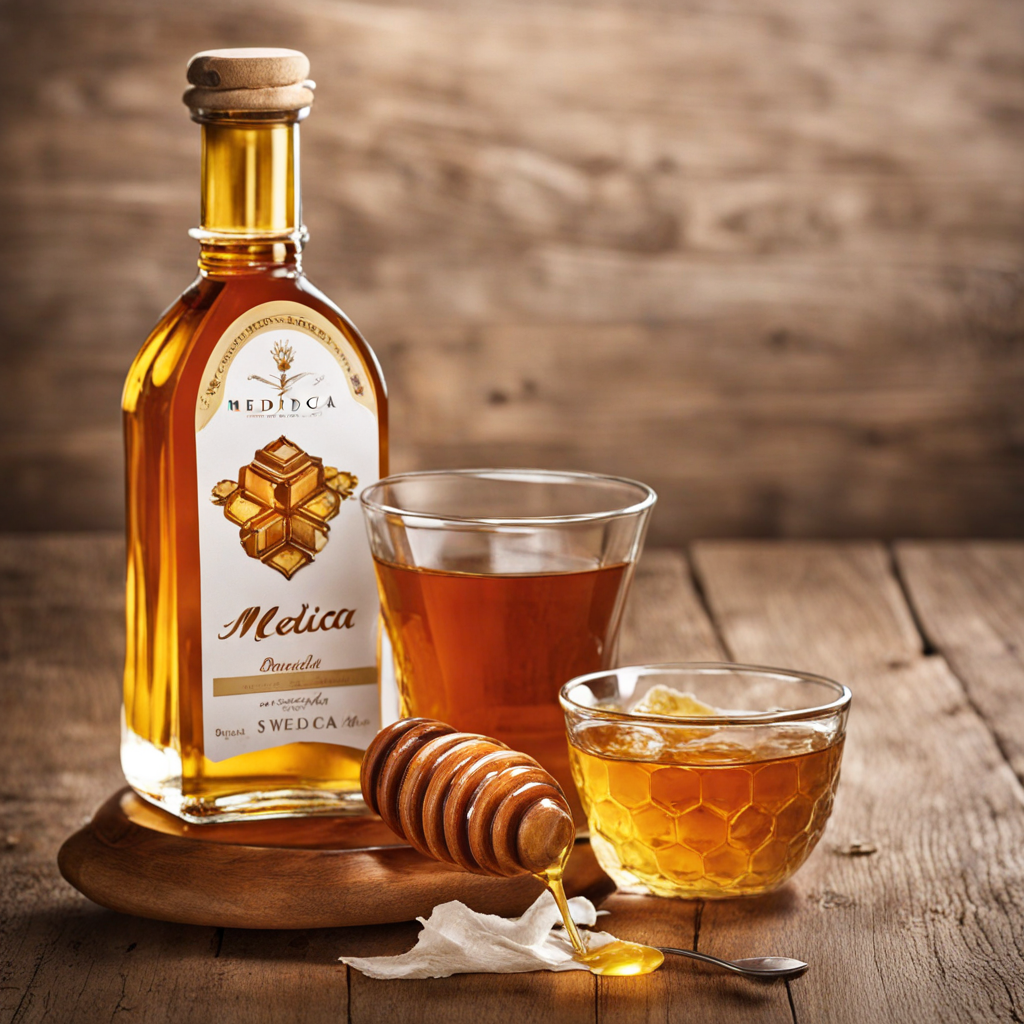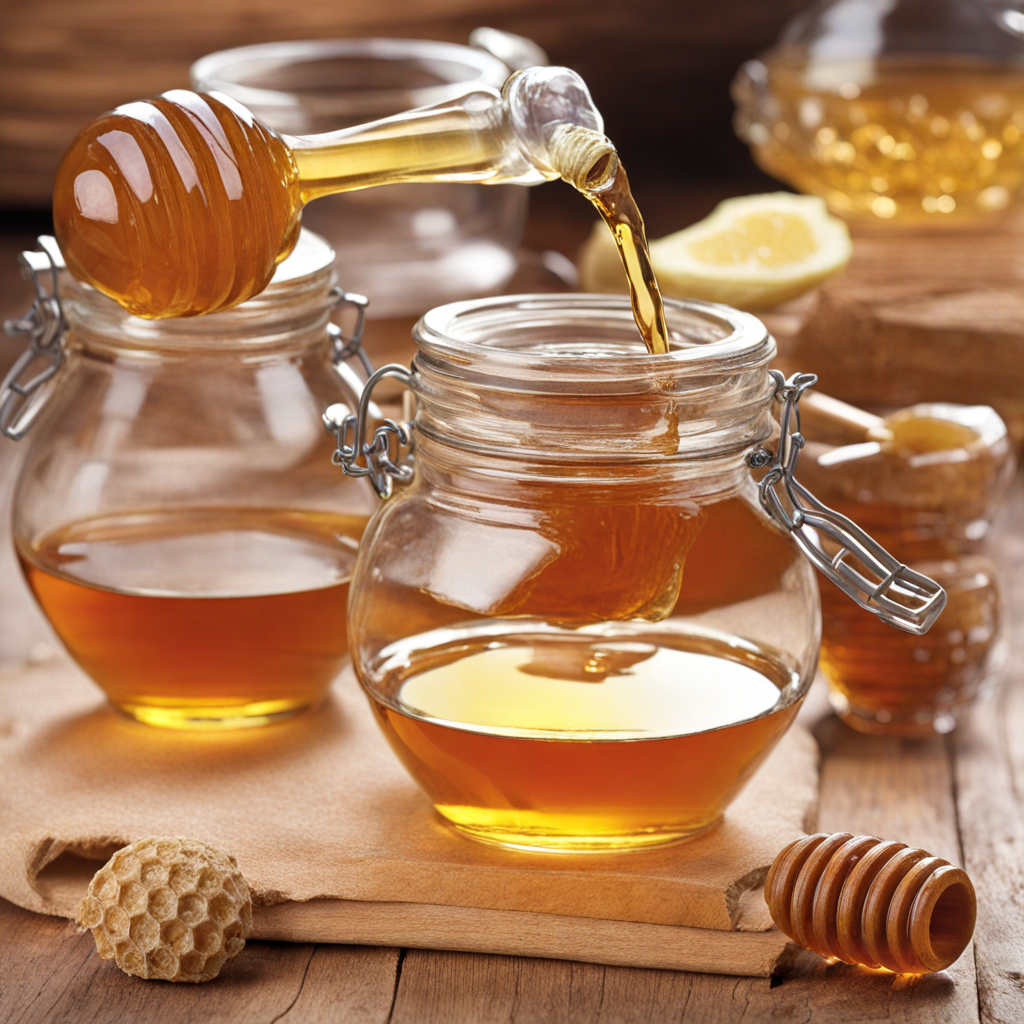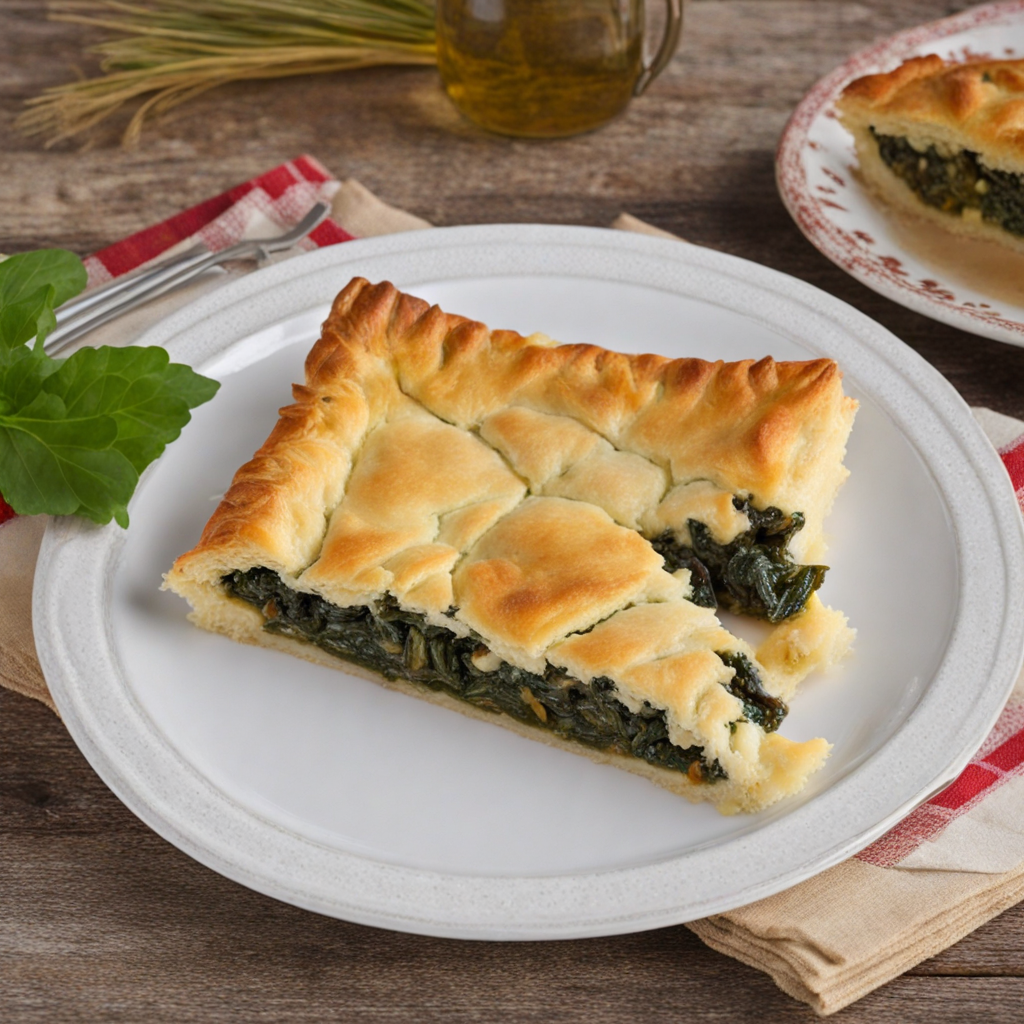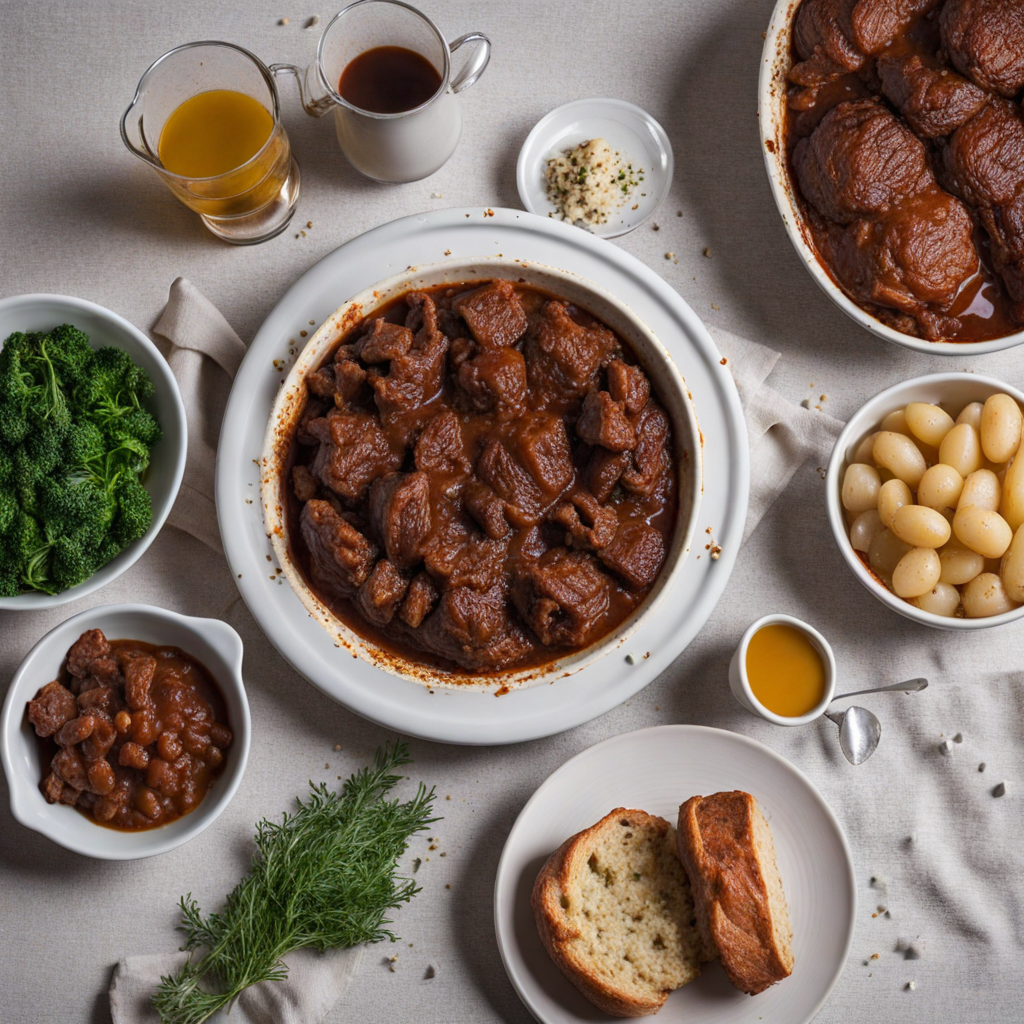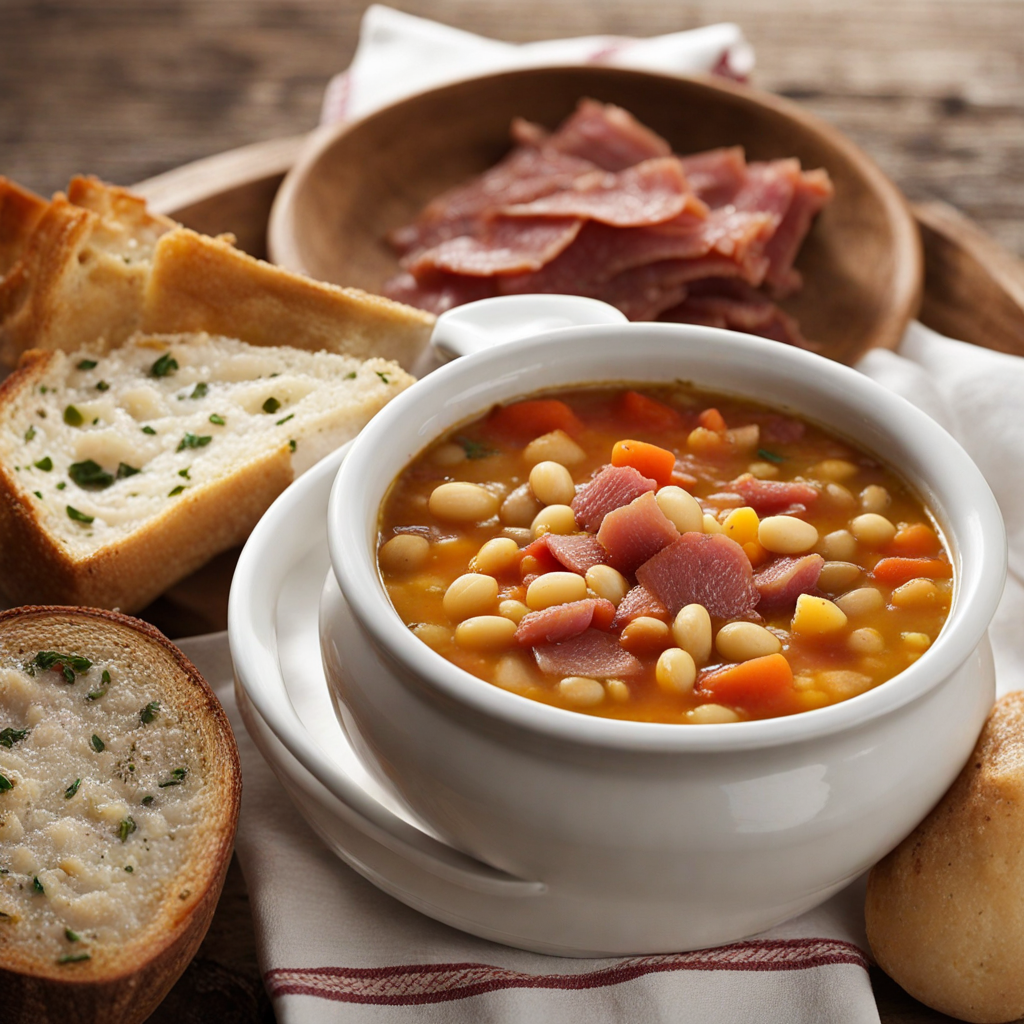Medica
Medica is a traditional Croatian liqueur that embodies the essence of the country's rich culinary heritage. This sweet, honey-based drink is crafted from a blend of local honey, herbs, and spices, creating a symphony of flavors that dance on the palate. The process of making Medica involves steeping the honey in alcohol, typically rakija, which helps to extract the aromatic qualities of the herbs used. The result is a smooth, golden elixir that can be enjoyed neat or used as a delightful complement to various desserts. The flavor profile of Medica is both complex and harmonious, offering notes of floral sweetness from the honey, balanced with the earthy undertones of the herbs. Depending on the region in Croatia, the recipe may vary, incorporating local ingredients such as lavender, sage, or chamomile. This unique combination not only reflects the diverse landscape of Croatia but also showcases the ingenuity of its people in creating a beverage that is both comforting and invigorating. The subtle warmth of the alcohol melds beautifully with the sweetness, making Medica an ideal digestif after a hearty meal or a warming treat on a chilly evening. Medica is often enjoyed during celebrations and gatherings, symbolizing hospitality and the joy of sharing. Its versatility allows it to shine in various culinary applications, from drizzling over ice cream and pancakes to being used as a flavoring agent in cakes and pastries. For those looking to explore the flavors of Croatia, savoring a glass of Medica is a perfect introduction, offering a taste of the country's natural bounty and cultural traditions. Whether sipped slowly or incorporated into dishes, Medica invites you to experience the warmth and richness of Croatian cuisine.
How It Became This Dish
Medica: The Sweet Essence of Croatian Tradition Origins of Medica Medica, a traditional Croatian liqueur, embodies both the spirit and the essence of the country’s rich cultural heritage. This honey-based drink has its roots deep in the history of the Mediterranean and the Balkans, with a lineage that can be traced back to ancient times. While variations of honey-based beverages have existed across Europe, Medica specifically hails from Croatia, particularly flourishing in the northern and central regions of the country. The word "Medica" derives from the Croatian word "med," meaning honey. The use of honey as a medicinal and culinary ingredient dates back to antiquity. Ancient Greeks and Romans revered honey for its health benefits and used it to sweeten wines and meads. In Croatian folk medicine, honey was considered a panacea, believed to cure ailments and enhance longevity. Its popularity in the region may have been influenced by these ancient practices, as well as the agricultural bounty of the land, which allowed for the production of high-quality honey. Cultural Significance Medica is not merely a drink; it is a symbol of Croatian hospitality, tradition, and community. The preparation and sharing of Medica often coincides with significant life events, such as weddings, holidays, and family gatherings. In many Croatian households, Medica is homemade, passed down through generations, with each family adding their unique twist to the recipe. This personal touch imbues the liqueur with a sense of identity and belonging. The drink is typically served as a digestif, enjoyed slowly after meals. Its sweet, fragrant profile makes it a comforting companion during long winter evenings, often shared among family and friends. Additionally, Medica finds its place in various rituals and celebrations, such as Slava (Serbian Orthodox feast day) and Christmas, where it is offered to guests as a gesture of goodwill. Moreover, Medica is intertwined with the Croatian concept of "bistro" culture, where food and drink play a central role in social interactions. In local taverns (konoba), Medica is a staple, capturing the essence of Croatian conviviality and the art of slow living. It represents a bridge between generations, as older family members pass down stories and recipes while preparing this cherished liqueur. Development Over Time Historically, the production of Medica has evolved alongside Croatia’s tumultuous past. During the Middle Ages, the introduction of distillation techniques allowed for the refinement of alcoholic beverages, leading to the modern iterations of Medica we recognize today. The drink gained prominence in the region as it became increasingly associated with local identity and pride. In the 19th century, with the rise of the Austro-Hungarian Empire, many Croatian traditions, including the production of Medica, began to receive more attention. Recipes started to be documented, and commercial production began to take shape. The liqueur was marketed not only within Croatia but also to neighboring regions, contributing to its reputation as a quintessential Croatian product. Throughout the 20th century, particularly following World War II and during the socialist era, Medica faced challenges. The focus of production shifted towards mass-market spirits, which threatened the traditional craft of homemade liqueur. However, the fall of communism in the early 1990s ushered in a resurgence of interest in local and artisanal products. This revival was characterized by a renewed appreciation for traditional methods, with many small producers emerging to craft high-quality Medica. Today, Medica is celebrated not only as a traditional beverage but also as a symbol of Croatia’s gastronomic renaissance. The rise of agritourism in the country has further fueled interest in local products, with tourists seeking authentic experiences that include tasting homemade Medica. Festivals dedicated to local food and drink, such as the Days of Croatian Honey and other regional food festivals, highlight the significance of honey and Medica in Croatian culture. The Modern Medica Contemporary Medica is characterized by its diverse range of flavors and variations. While the base remains honey, producers often incorporate different herbs, spices, and fruits to create unique profiles. Ingredients such as lemon, cinnamon, and various local herbs enhance the complexity of the drink, appealing to a broader audience and catering to evolving tastes. Some artisans have even experimented with aging Medica in barrels, adding another layer of depth to this traditional liqueur. Artisanal producers emphasize quality and sustainability, often sourcing honey from local beekeepers and using organic ingredients. This focus on craftsmanship resonates with consumers who are increasingly conscious of the origins of their food and drink. As a result, Medica has found its way into cocktail culture, where mixologists experiment with it as a base for innovative drinks, blending tradition with modernity. Conclusion Medica represents a vibrant tapestry woven from Croatia’s history, culture, and agricultural heritage. Its journey from ancient medicinal beverage to a modern symbol of hospitality and tradition reflects the resilience and creativity of the Croatian people. As it continues to evolve, Medica not only preserves the essence of its past but also embraces the future, inviting new generations to partake in its sweet charm. Whether enjoyed in a rustic konoba or a contemporary bar, Medica remains a testament to the rich culinary landscape of Croatia, a drink that encapsulates the warmth of community and the joy of shared moments.
You may like
Discover local flavors from Croatia


